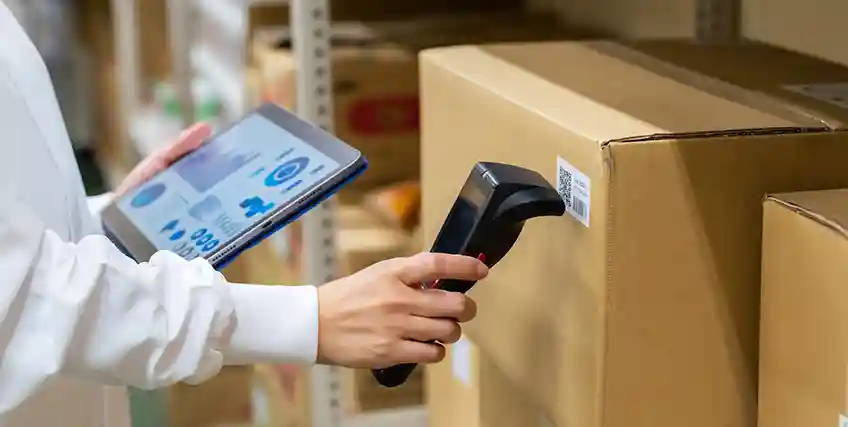Is a Business Loan Right for Your Retail Store?
August 04, 2025 | Last Updated on: August 04, 2025

Starting a retail store is a labor of love. It’s also one that requires significant upfront capital. Small business owners need to find the right storefront, fill it with inventory, and get all of the labor and operational keys in place to ensure smooth sailing. Unless you have deep pockets to pull from, a small business loan for retail store can be a great option whether you’re just starting out or you’re looking to expand. Here, we explore the intricacies of retail store loans, from the startup costs to the various loan options available, to strategies to boost your approval chances.
In this article:
- Common startup costs for retail businesses.
- The types of financing options available and what business loan for retail stores may be right for you.
- Tips to improve your loan application and increase your approval odds.
Common Retail Store Startup Costs
Before considering a business loan for a retail store, you need to understand your startup costs. These can vary based on your concept, location, square footage, and the type of inventory you plan to sell. The average cost to start a retail store in 2025 is $39,210, but it could be more or less depending on your specific store. Here are some of the key costs you’ll need to consider:
- Storefront: One of the biggest upfront costs will be your storefront, which may require a substantial upfront payment for a commercial real estate loan or a lease. If you want to make renovations that will add to the costs.
- Inventory: Depending on what you sell, this could also be an incredibly significant cost. You’ll need a steady stream of inventory to sell goods to customers.
- Equipment: An underrated business need, you’ll have to stock your store with shelving, racks, display units, security systems, and a point-of-sale (POS) system, all of which could add up quickly.
- Technology: Beyond internet and phone services, retail business owners might consider setting up a website or e-commerce platform to diversify revenue streams.
- Labor: A retail shop loan can help you handle your initial hiring needs to get a great team in place when you’re just starting out.
- Marketing: Franchises may have a marketing budget, but small business owners will need to invest in their own branding materials like storefront signage, bags, and packaging, as well as ongoing promotional activities for the business.
- Working capital: Finally, you’ll need funds to cover ongoing operational expenses. It’s a good idea to have enough money to cover at least three to six months until your revenue stabilizes.
Types of Business Loans for Retail Stores
When you have a clear idea of your financial needs, it’s easier to apply for a business loan for a retail store. Not only will you understand the loan amount you need, but you’ll have a better idea of the funding options available given those specific needs. These are some of the bests.
Term loans
Conventional term loans are available from both traditional lenders like banks and credit unions, and online lenders. With these loans, you receive an upfront lump sum from a lender that you repay with monthly payments, plus interest. Term loans provide a flat amount of retail financing to help you address a wide range of business needs and predictable repayment terms that can make it easier to budget.
Traditional lenders tend to have stricter eligibility requirements and longer funding timelines than online lenders, so if you’re in need of fast cash or you have bad credit, consider an online lender.
SBA Loans
The United States Small Business Administration (SBA) works with traditional banks to provide small business funding. The SBA doesn’t lend directly, but works with SBA lenders to partially guarantee loans, reducing the risk of lending to businesses. There are a few SBA loan programs that may make a good business loan for retail stores.
- SBA 7(a) loan: The most popular SBA program is a versatile loan that yo can use for working capital, real estate, equipment purchases, and virtually anything else. Interest rates and loan terms tend to be competitive, but eligibility requirements are strict and the application process may be rigorous.
- SBA Microloans: These smaller SBA loans are more accessible for startup owners as they have a less rigorous application process. They may be an effective loan for retail stores.
Business Lines of Credit
A business line of credit is a cross between a term loan and a business credit card. With a revolving line of credit, you withdraw money when you need, and only pay interest on the withdrawal rather than the available line of credit. Once you repay what you’ve borrowed, you’ll have access to the full amount again.
A line of credit is a safety net for managing cash flow in an emergency or when you see an opportunity in the marketplace, and the flexible repayment could make it easier to manage than a conventional business loan for a retail store.
Equipment financing
With an equipment loan, typically the equipment itself serves as collateral for the loan. That means if you fail to repay it, the lender may take possession of the equipment and sell it to recoup some of what you owe. This collateral often allows you to get lower interest rates or better loan offers.
If you have significant equipment needs for POS systems, security equipment, warehouse equipment, or something else, this kind of specialized business loan for retail store can provide low-cost borrowing.
Other Financing Options
In addition to a business loan for a retail store, there are some alternative financing options you might explore if you can’t qualify for traditional loans.
Inventory financing
This specific type of financing uses your unsold stock as collateral. It's designed to help you purchase inventory, especially during peak seasons. It can be a great retail store loan if you need fast cash to buy wholesale inventory.
Merchant cash advances (MCAs)
A merchant cash advance is not a business loan for a retail store, but it is a commercial arrangement with a third-party provider that can help you get cash in a hurry. With an MCA, you receive a lump sum payment in exchange for a percentage of your future credit card sales. They’re easy to qualify for, but can often be much more expensive than conventional loans, requiring you to dip into your profits to make daily or weekly payments until you reach the repayment amount.
How to Get a Business Loan for Retail Store
Securing a business loan for retail store, especially as a startup, requires careful preparation. Here’s the step-by-step process:
- Determine your funding needs: Take the time to create a strong, detailed business plan that takes into account itemized startup costs and financial projections for how you intend to generate a profit. Not only will this be very useful when applying for a loan, but it will give you a better idea of how much you need to borrow and the type of business loan for a retail store to pursue.
- Assess eligibility: Lenders have differing eligibility requirements. You need to be realistic when looking at your credit history and personal credit score. You may be able to increase your approval chances if you have collateral to offer or can make a down payment, but you can save yourself time by being honest about what you may qualify for.
- Compare lenders: Take the time to prequalify with multiple lenders to get an idea of what kind of interest rates and loan terms you’re offered. Don’t just take the first loan; look around to find the best fit for your business.
- Gather documentation: When you’re ready to apply, the process will be faster if you have all of your documentation ready to go. This includes a business plan, financial statements, bank statements, personal and business tax returns, and basic information about the business.
- Apply: Most lenders allow you to apply online today, but some may require you to do so over the phone or in person. Traditional lenders tend to have longer turnaround times than online lenders.
Final Thoughts
Starting a retail store can be an exciting venture, but it’s also a challenging one. From a storefront to initial inventory costs, a business loan for a retail store can help you cover the major costs when you’re first starting out. Before you apply, make sure you review the funding options available to you and are realistic about your needs. By preparing a strong business plan that articulates your vision and fully understanding your funding needs, you can get a retail shop loan that works for your business.
FAQs About Business Loan for Retail Store
How much money do I typically need to open a retail store?
According to Shopify, opening a retail store costs almost $40,000 on average. On top of that, you'll need working capital for few months of operating expenses, depending on your store's size and location.
What are some of the best types of business loan for retail store?
For a new retail store, SBA loans may offer the lowest interest rates and most favorable terms. Conventional term loans may be less accessible from traditional banks, but online lenders may offer short-term loans. You could also consider a business line of credit or alternative options like invoice financing or merchant cash advances.
What do lenders look for when I apply for a business loan for a retail store?
Lenders primarily look for a comprehensive business plan, a strong personal credit score, demonstrated retail or management experience, realistic financial projections, and sufficient owner investment. Having collateral can also significantly improve your chances of securing a business loan for retail store.
How long does it take to get a business loan for a retail store?
It depends on the loan type and lender. SBA loans typically have the longest approval process, while online lenders tend to have faster processes than traditional lenders.
Are there grants available for starting a retail store?
While federal grants are generally not available for starting a for-profit retail business, you might find some grants from private foundations, local governments, or specific organizations focused on community development or supporting certain demographics, such as women-owned, minority-owned, or veteran-owned businesses. Websites like Grants.gov can be a good starting point.
Frequent searches leading to this page
Term Loans are made by Itria Ventures LLC or Cross River Bank, Member FDIC. This is not a deposit product. California residents: Itria Ventures LLC is licensed by the Department of Financial Protection and Innovation. Loans are made or arranged pursuant to California Financing Law License # 60DBO-35839




